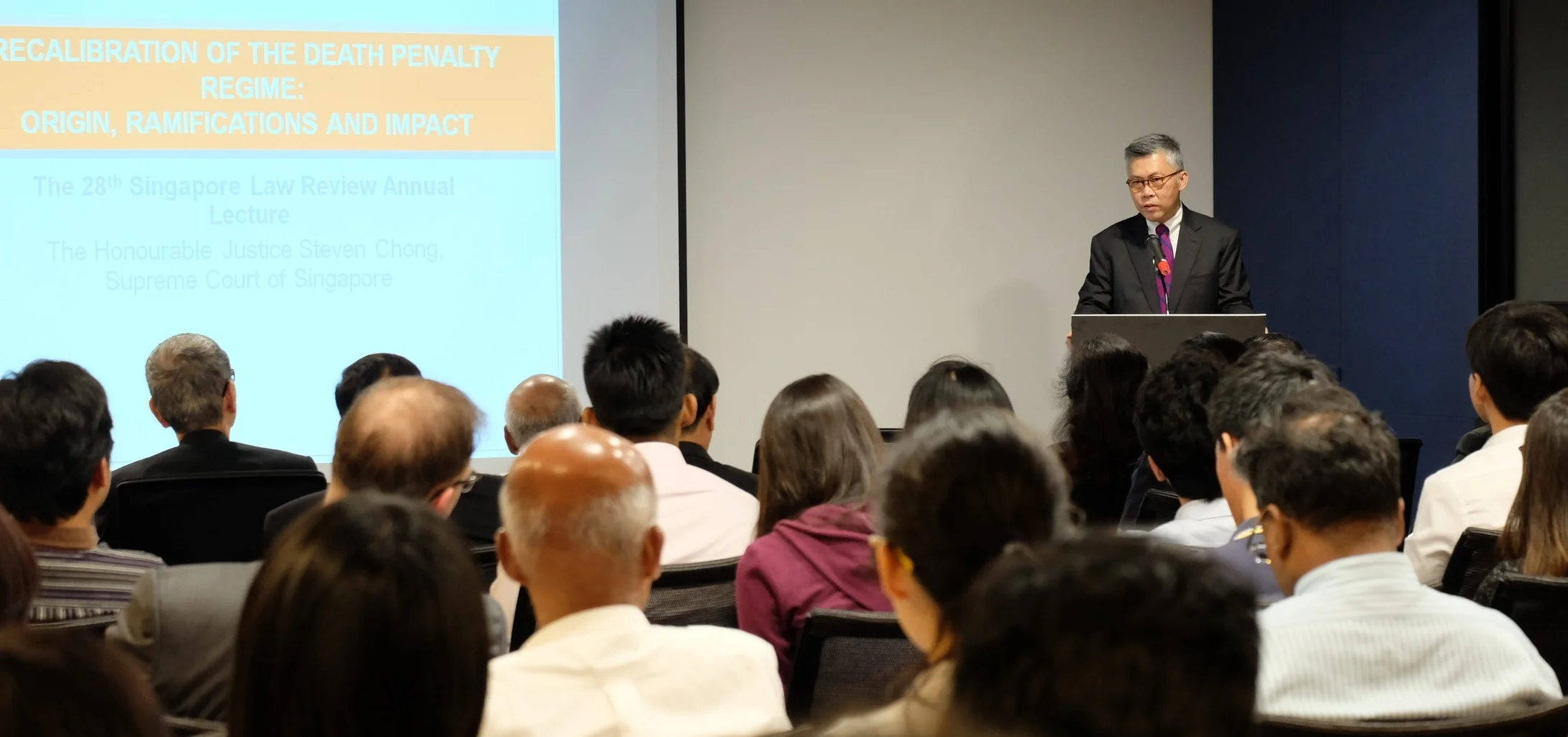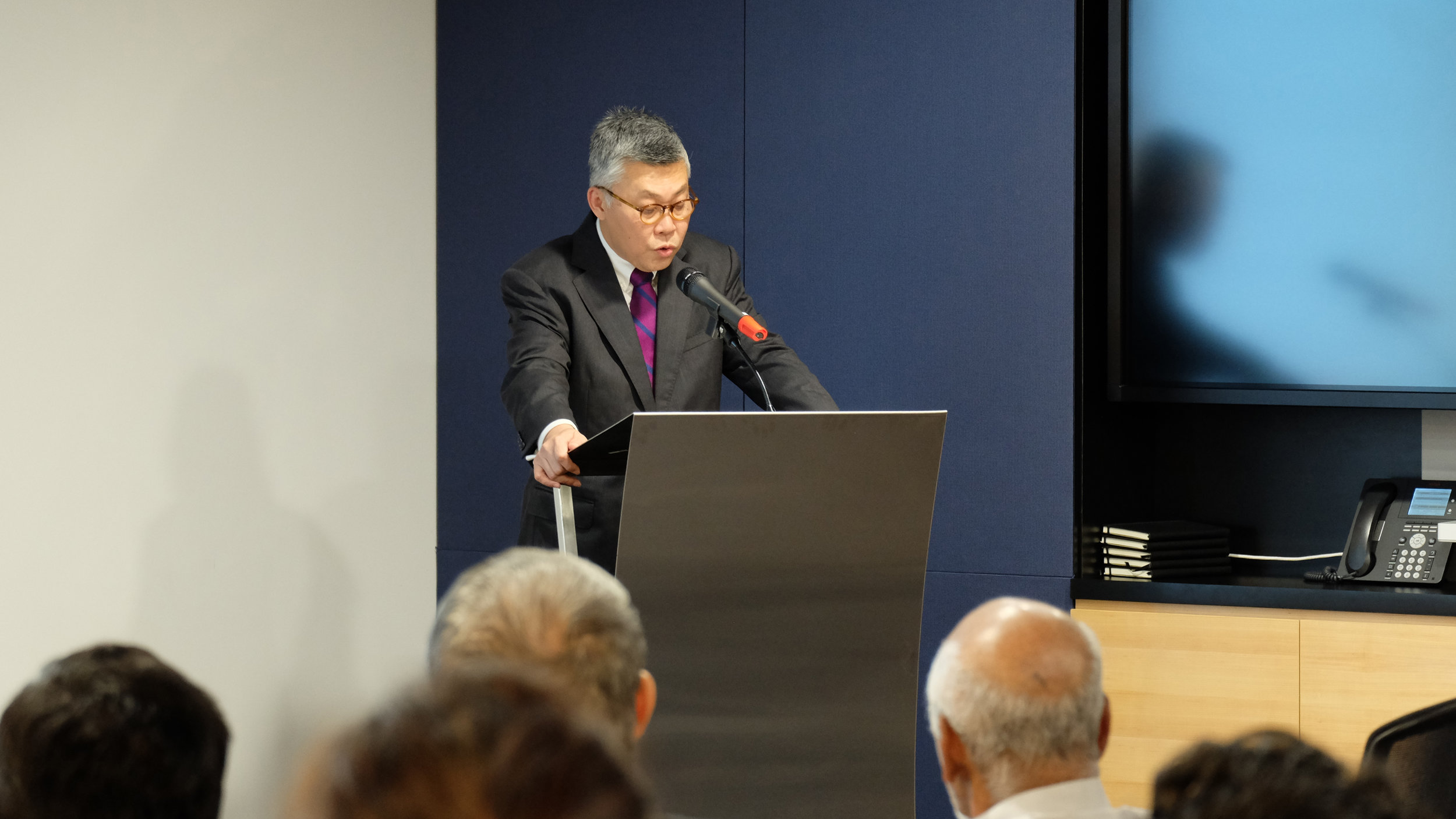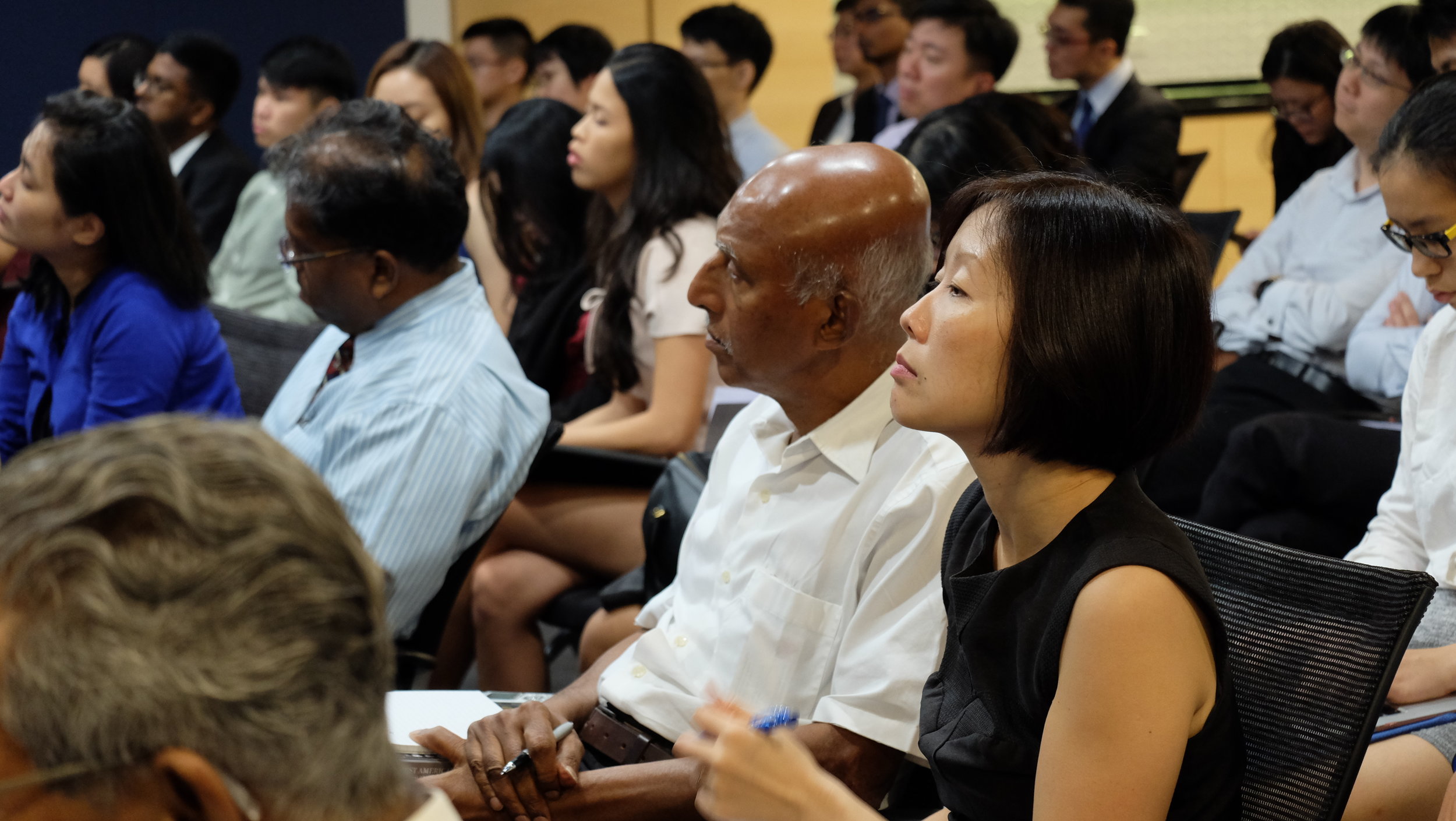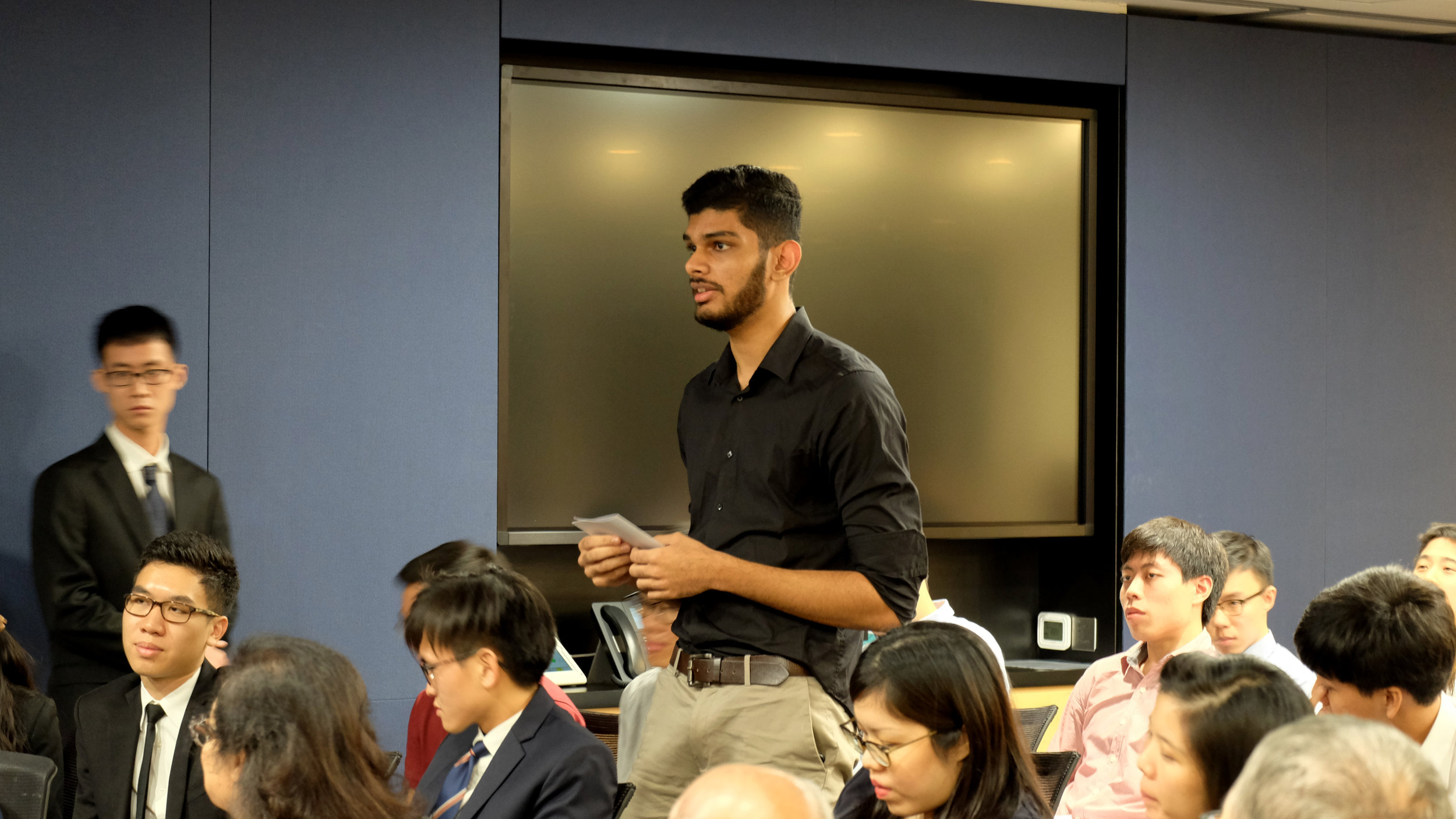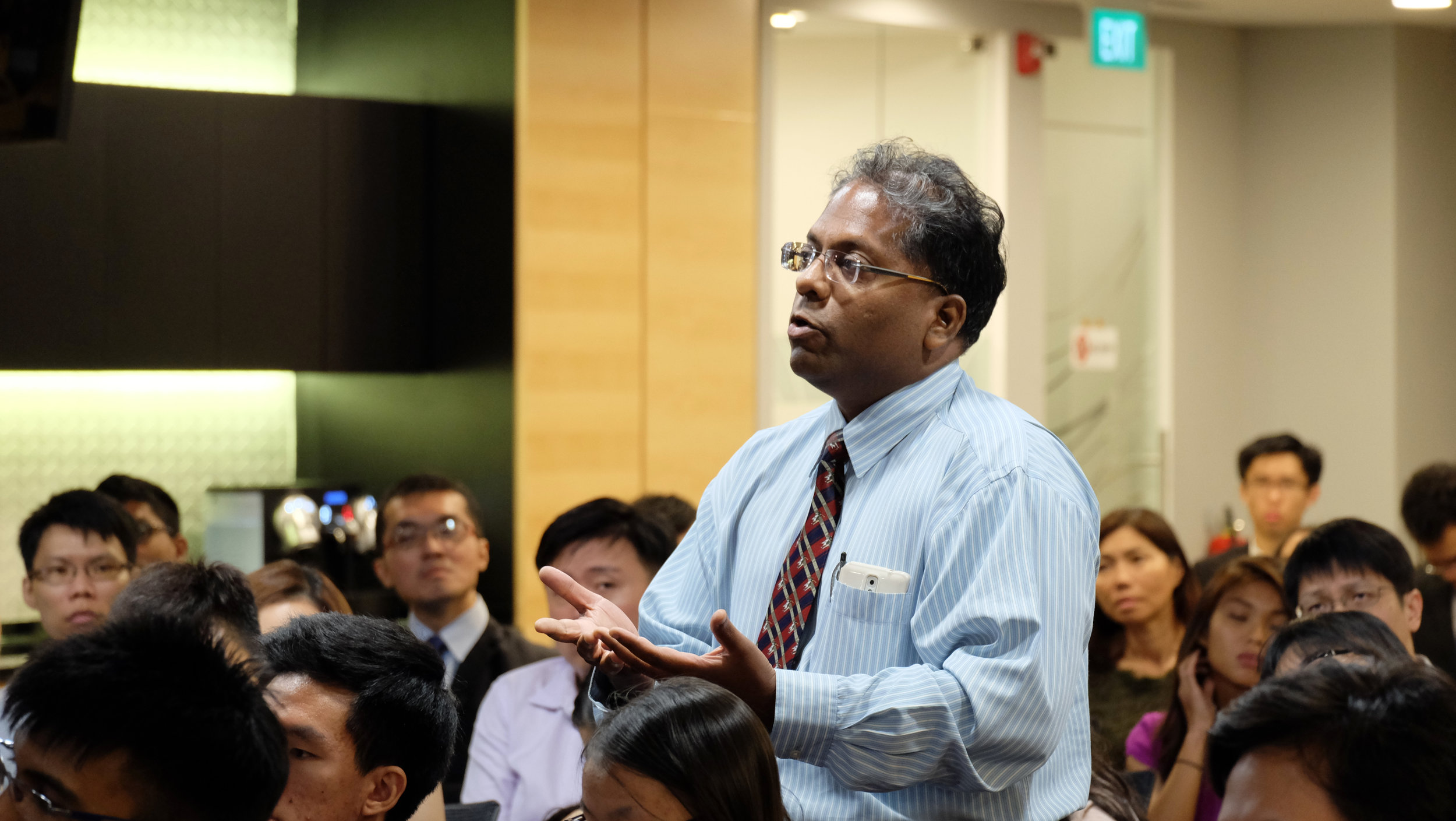The 28th Singapore Law Review Annual Lecture was held on 8th November 2016, and featured the Honourable Justice Steven Chong’s address on the amendments to the mandatory death penalty scheme under the Misuse of Drugs Act and the Penal Code. Justice Chong was captivating and provided a unique perspective on the issue of crime prevention in Singapore, having been on both sides of the bench as former Attorney-General and current Supreme Court judge. An enthusiastic audience then engaged Justice Chong in an exciting question-and-answer session, proving that the Annual Lecture continues to promote the Singapore Law Review's objectives of creating awareness of current legal issues and promoting legal thought and discussion.
The address was titled “Recalibration of the Death Penalty: Origin, Ramifications and Impact”. Accordingly, Justice Chong’s speech was split into three segments: the history and origins of the death penalty and the Amendments; the legal challenges which have arisen in the application of the discrete legal rules which comprise it; the response of the courts, and the impact that it has had on the practice of criminal law.
Justice Chong began by setting out the original principle underlying the death sentence – general deterrence – together with two other key themes: the need for a more calibrated sentencing framework and the roles of the Executive and Judiciary in the criminal process. He then explained how the Amendments accorded with these themes, and were made in recognition of changing social mores, norms and expectations. As Parliament had acknowledged, imposing a mandatory death sentence for all forms of murder “was no longer consonant with the modern drive for greater texture and nuance” in criminal sentencing. However, Justice Chong noted that the Amendments did not represent a paradigm shift in policy as regards the mandatory death penalty, and that the “long-standing emphasis on deterrence” remains a constraint to changes in this area. Instead, the courts are now allowed to sentence offenders more appropriately based on their relative culpability.
Justice Chong proceeded to discuss some challenges that have arisen in implementing the amended death penalty laws. Referring to concerns that the flexibility provided by the Amendments may result in inconsistent and arbitrary decisions, Justice Chong pointed to the recent case of Kho Jabing, in which the Court of Appeal set out broad guidelines to ensure consistency in the exercise of judicial discretion.
A highlight of the event was the question-and-answer session. Although Justice Chong began his Lecture with the qualification that he was not there to discuss the normative ethics of death penalty, a participative audience posed hard-hitting and thought provoking questions ranging from the deterrence objective of the death penalty, to even how Justice Chong’s personal experience as a judge was affected by his time as former Attorney-General. The heated question-and-answer session highlights how the death penalty is and will remain a hotly debated legal issue in the years to come. Justice Chong’s thoughtful answers gave much clarification to the audience’s questions, and heightened awareness surrounding the issue.
This year’s Lecture was attended by academics, practitioners and students alike, and marked the additional milestone of accreditation by the Singapore Institute of Legal Education. The Singapore Law Review would like to thank Justice Chong for delivering the Lecture, Withers Khattarwong for their sponsorship and support, and all who took the time to attend the Lecture. We hope everyone had an enjoyable and fulfilling time.
Writer: Law May Ning
Photo credits: Hang Ying Yao
Links
Full transcript of Justice Chong's Lecture
Article by The Straits Times
More photos of the event can be found here.
Click here for more news.
